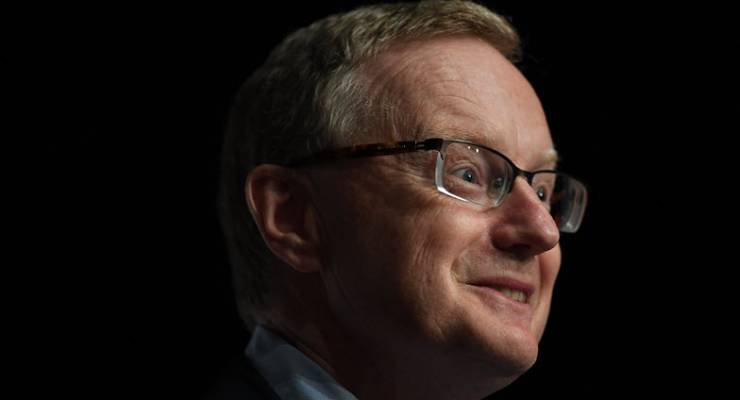
Reserve Bank governors, like central bankers throughout the world, are renowned for pulling their punches and employing the most indirect language possible. But governor Philip Lowe was almost contemptuous yesterday in his dismissal of efforts by markets and commentators to shove the Reserve Bank onto the “rate rise looms” bandwagon because other central banks throughout the world might do so.
The “neutral rate” debate — to dignify what has been a facile discussion — has brought out the sadistic streak in some commentators, who think a sharp rise in interest rates will be some sort of bracing tonic for a lazy economy and keep us in line with international trends. “About time for rate reality” opined the Financial Review recently, demanding interest rate rises.
In his speech yesterday to the Anika Foundation — a continuation by Lowe of Glenn Stevens’ annual address to that deserving cause — Lowe politely had a crack at such thinking at the end of his speech.
“Elsewhere in the world, some central banks are now starting to increase interest rates and others are considering when to withdraw some of the monetary stimulus that has been put in place. This has no automatic implications for monetary policy in Australia. These central banks lowered their interest rates to zero and also expanded their balance sheets greatly. We did not go down this route. Just as we did not move in lockstep with other central banks when the monetary stimulus was being delivered, we don’t need to move in lockstep as some of this stimulus is removed.
“Our decisions will continue to be made within the framework of our medium-term inflation target. We are intent on delivering Australians an average rate of inflation over time of between 2 and 3 per cent. We are seeking to do this in a way that supports sustainable growth in the economy and that best serves the public interest.”
Lowe’s comments echo those last week by his deputy Guy Debelle, who also put the kybosh on efforts to extrapolate the neutral rate discussion into some grand prediction of monetary policy.
The “we need to follow the globe” argument looks even weaker given recent developments. Shortly before Lowe spoke, we learnt inflation fell back below 2% in the June quarter inflation — which is one trend where we are in lockstep with other countries, because inflation has now eased for most of 2o17 around the world — in the US, Europe, Japan, NZ, and UK. You look pretty silly being an inflation hawk when inflation is actually below the central bank’s target band.
The main topic in Lowe’s address was the labour market — which he correctly says has been performing well — and, more to the point, why wages are stagnant here and elsewhere. This is the conundrum that has puzzled economists, central bankers and even politicians around the world: why there are more jobs but wages aren’t going up, which is pissing ordinary voters off across the West.
Lowe suggests low productivity growth is partly to blame, but he suggests a sense of competition in globalised markets, job insecurity and lower labour mobility are encouraging workers to mute their demands for pay rises.
“Perhaps as a consequence of this extra competition – or perhaps as a consequence of other forces within our societies — many workers in advanced economies feel that the world is less secure — less secure economically and less secure politically. This means that security is valued more highly. With a greater premium on security, it’s plausible that workers are less inclined to take a risk by seeking larger wage increases.”
There’s merit in this argument — but Lowe ignored a key point. It is labour protections and unions that also help workers feel greater job security and (yes) fight off competition from, for example, foreign workers allowed in to compete with them. And part of the market economics agenda of the last 30 years has been to cut back workers’ protections and reduce the capacity of unions to protect workers. Any analysis of wage stagnation that overlooks the role of industrial relations is inevitably going to be incomplete. Of course, industrial relations isn’t really in the central bank’s bailiwick, so Lowe may have been wary of courting controversy — especially given his call for workers to pursue higher wage rises was followed by the RBA itself handing out a measly pay rise to its own staff.







Indeed, I have argued often, and again, that discussions about the lack of wage rises without reference to the loss of union power and the rorting of visas is a non-discussion.
You cannot tell me that wages aren’t being held back by the easy out of finding a low wage seeking person from overseas.
As for the unions, well while it has been a neoliberal project to clip their wings (and arms, legs, ears and sew up their mouths) but the unions haven’t covered themselves in glory in the past few years.
Surely the master of word without meaning was Alan Greenspan whose pronouncements were so convoluted and incomprehensible that they could be deemed to mean whatever the listener wanted – prior to the GFC.
He once had the gall to say “If you think that you understood me, you weren’t listening.”